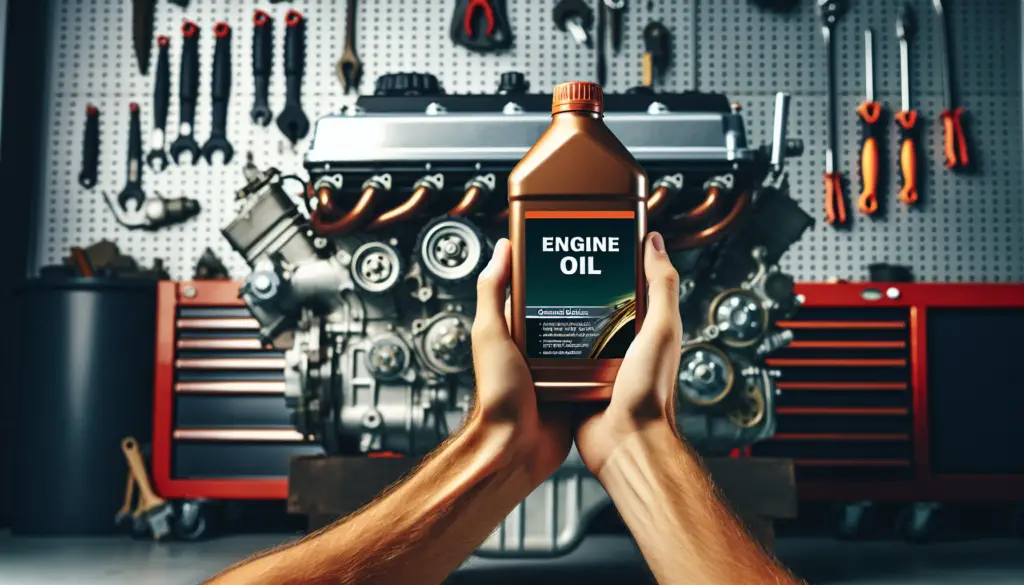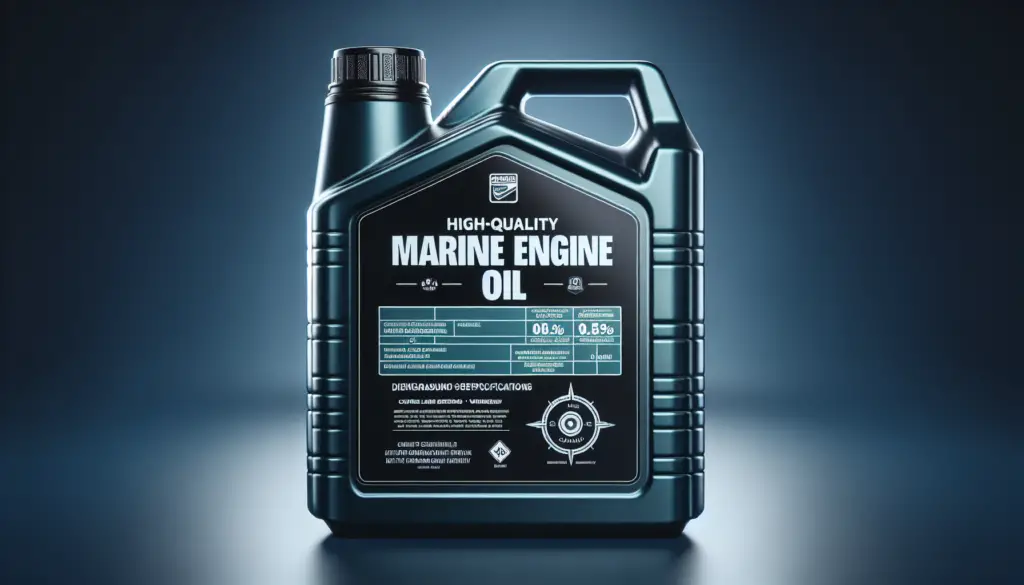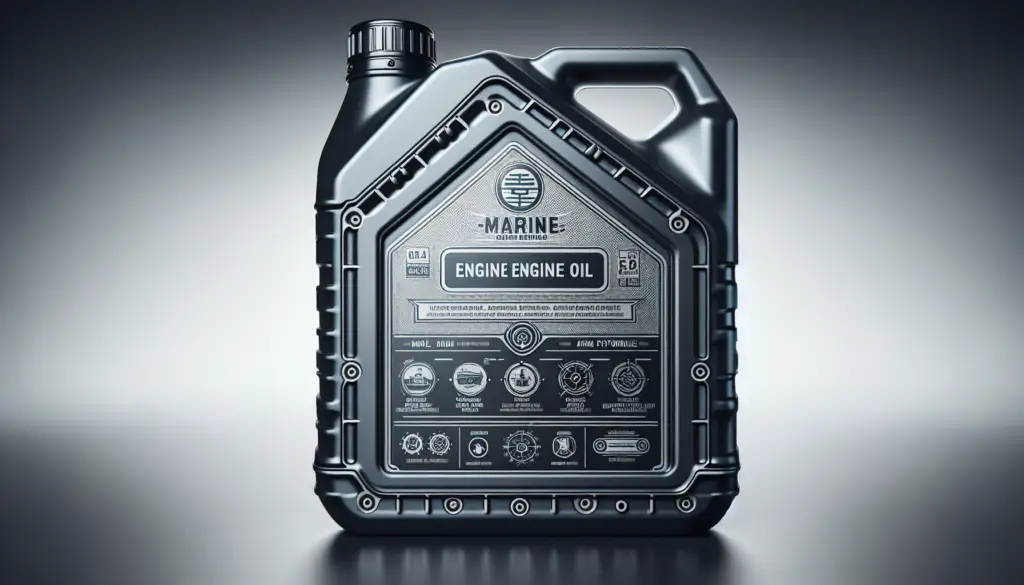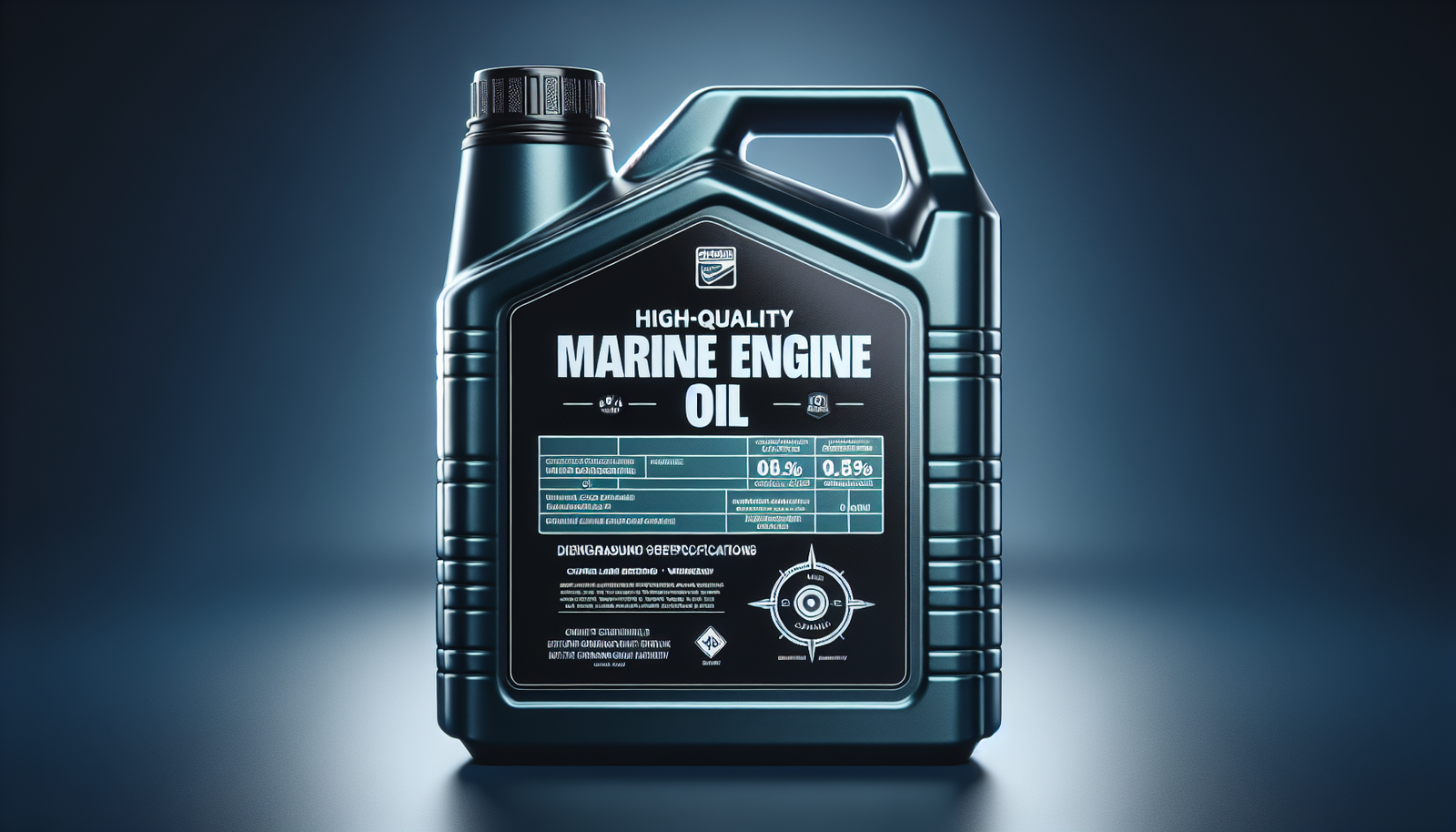Venturing out on the open seas in your boat is an incredible feeling, a moment of pure freedom. But to keep this blissful solace, ensuring your boat’s engine runs smoothly is crucial. “How To Choose The Right Boat Engine Oil For Optimal Performance” offers insight into the complex world of marine engine oil. This article will guide you in making the right choice, becoming well-equipped to understand the nuances between various engine oils, comprehending their relevance to your boat’s performance, safety and durability. Let’s get your vessel in the best shape possible, so you can set sail with confidence!
Understanding the Importance of Boat Engine Oil
Just like the human body needs blood to function optimally, your boat’s engine requires the right engine oil. It lubricates essential components, reducing friction and wear, and ensures that the engine runs smoothly. Essentially, the right boat engine oil can either make or mar your boating experience.
Role of engine oil in a boat
Engine oil in your boat plays an indispensable role. It acts as a lubricant for all moving parts in the engine, reducing friction and dissipating heat. Besides, engine oil also acts as a sealant between piston rings and cylinder walls, ensuring efficient power generation. Furthermore, it wards off harmful substances such as dirt and combustion byproducts that can cause damage, ensuring your boat’s engine remains clean and operates smoothly.
How engine oil impacts boat performance
The type of engine oil you use can significantly impact your boat’s performance. Good-quality oil ensures that your engine runs efficiently and delivers optimal power. It also improves fuel economy, as an efficiently running engine burns less fuel. Additionally, high-quality engine oil reduces engine noise and makes your ride more comfortable and enjoyable.
Long-term effects of using incorrect engine oil
Often, boaters underestimate the potential damage the wrong engine oil can cause. In the long run, it can lead to accelerated wear and tear or even complete engine breakdown. Furthermore, the use of incorrect engine oil can lower fuel efficiency and impair performance, not to mention the stress and financial implications of repeated repair and maintenance work.
Different Types of Boat Engine Oils
In essence, there are three main types of boat engine oils available – mineral-based, semi-synthetic, and fully synthetic. Each has its distinct properties and applications.
Mineral-based engine oils
Mineral-based engine oils, derived directly from crude oil, are the most traditional type of engine oils. They offer good lubrication and protection but require more frequent oil changes compared to synthetic oils.
Semi-synthetic engine oils
Semi-synthetic engine oils blend mineral and synthetic oils to balance cost and performance. They offer enhanced performance and protection compared to mineral oil but are less expensive than fully synthetic oils.
Fully synthetic engine oils
Fully synthetic engine oils, produced through complex chemical reactions, offer superior performance and protection under extreme operating conditions. They offer better viscosity at low temperatures, resistance to oxidation and thermal breakdown at high temperatures, and they shed deposits.
Importance of marine-specific oils
Just as you would not use car engine oil in an airplane, it’s essential to use marine-specific oils in your boat. These oils are specifically formulated for the challenges presented by the marine environment, including higher operating temperatures and constant exposure to moisture.

Evaluating Your Boat’s Specific Needs
When it comes to selecting the right engine oil for your boat, there’s no ‘one size fits all’. Your boat’s specific needs should guide your choice.
Considering engine type
The engine type – whether it’s a 2-stroke, 4-stroke, inboard, or outboard – has a significant impact on the type of oil required. For instance, 4-stroke engines typically require heavier oils, while 2-stroke engines need lighter, specific oils.
Understanding manufacturer’s guidelines
Your boat’s manufacturer knows your engine best. Hence it’s essential always to follow their recommended oil type, viscosity, and change intervals. Ignoring these guidelines might lead to engine malfunctions or damage.
Factoring in engine age and condition
The age and the condition of the engine must play a role in the oil decision. Older engines often need higher viscosity oil to provide adequate lubrication and protection.
Considering your boating environment and conditions
The boating environment and conditions, such as temperature, humidity, saltwater exposure, and the intensity of boat usage, should influence your choice of engine oil.
Understanding Engine Oil Ratings and Specifications
Engine oil ratings and specifications are crucial to choosing the right oil for your boat’s engine. They present valuable information about an oil’s performance level, viscosity, and its potential to withstand various operating conditions.
Knowing API classifications
The American Petroleum Institute (API) assigns specific classifications to engine oils based on their performance characteristics. For instance, oils with an API rating of “SM” are suitable for engines of model year 2004 or older, while “SN” oils are appropriate for 2011 or older boats.
Understanding viscosity index
Viscosity refers to an oil’s resistance to flow. The viscosity index tells you how well the oil will perform at different temperatures. A multigrade oil, such as 10W-40, indicates the oil works well in both cold and hot weather.
Role of additives in the engine oil
Additives in engine oil enhance its performance by inhibiting oil oxidation, enhancing viscosity indexes, reducing engine wear, and preventing the formation of sludge. Therefore, the selection of engine oil with the appropriate additives is vital for the optimal functioning and lifespan of the engine.
Understanding NMMA certification
The National Marine Manufacturers Association (NMMA) certifies boat engine oils that meet their stringent performance tests as FC-W (Four Cycle – Water-cooled). It’s crucial to look for this certification when picking engine oil for your four-cycle boat engine.

Choosing the Right Engine Oil Based on Boat Usage
Your boat’s usage is an essential factor when choosing an engine oil. Different uses can necessitate different types of oils to ensure maximum reliability and performance.
Choosing oil for recreational boating
For recreational boating, your engine oil needs will largely depend on the intensity of your usage and the specific model of your boat. An all-season oil can most likely suit casual or infrequent boaters, while heavy boaters might need to be more particular.
Choosing oil for high-performance boating
If you’re into high-performance boating, like racing, you’re exposing your engine to high stress levels. Hence, a high-quality synthetic oil can offer the best protection against wear, as well as deliver superior performance even under intense conditions.
Choosing oil for commercial boating
Commercial boating typically involves significant engine loads and long hours daily, necessitating high-quality, durable engine oil like a robust synthetic oil. Regular oil changes are also key to maintain optimal engine performance.
Seasonal considerations in choosing boat engine oil
Your engine oil choice should consider the boating season. An oil with a lower viscosity is better for cooler winter months, while a higher viscosity oil is more suitable during hot summer months.
Myths and Misconceptions About Boat Engine Oils
While there is a lot of good information out there about boat engine oils, there are also some prevalent myths and misconceptions. It’s essential to debunk these for proper engine maintenance.
Debunking the myth of car engine oil suitability
Many people believe that you can use car engine oil in a boat’s engine. While car and boat engines share similarities, they operate under different conditions. Marine-specific oils are formulated to meet the unique demands of boat engines.
Understanding the ‘running-in’ misconception
The ‘running-in’ myth suggests that new engines need a period where they run on a specific oil before changing to the regular oil. Modern boat engines are run-in by the manufacturer, eliminating the need to ‘break-in’ the engine with a different oil.
Addressing common misconceptions about oil change intervals
Many boaters believe that they can extend oil change intervals to save costs. However, semi-regular oil changes are crucial to keep your engine running optimally, and extending these intervals can lead to decreased engine performance or even damage.

The Importance of Regular Oil Changes
Routine oil changes are as integral to engine maintenance as the correct oil selection. They not only help keep the engine performing optimally but also extend its lifespan.
Recognizing when an oil change is necessary
Being aware of the signs of needing an oil change is integral. Generally, manufacturers recommend an oil change every 50-100 hours of operation or at least once a year. However, circumstances such as heavy usage or boating in harsh conditions might require more frequent oil changes.
Understanding the impact of oil changes on boat performance
Regular oil changes maintain peak engine performance by replacing degraded oil that can harm the engine’s internal components. Besides improving performance, regular oil changes also offer protection against wear and tear.
The risks of extending oil change intervals
Procrastinating on oil changes can lead to the engine running on low, dirty, or degraded oil. This can accelerate wear and tear, negatively impact performance, and in severe cases, cause irreparable damage to the engine.
Common Mistakes to Avoid When Choosing Boat Engine Oil
Choosing the right oil for your boat engine isn’t an easy task, and it’s easy to make mistakes. Here are some common pitfalls to avoid.
Overlooking the manufacturer’s recommendations
Ignoring the manufacturer’s oil recommendations might seem like an easy way to cut costs but can lead to diminished performance or engine damage over time.
Choosing an oil based solely on price
Although lower-priced oils may seem appealing, they often don’t offer the same performance and protection levels as more expensive counterparts.
Neglecting to consider the boating environment
The environment your boat frequents—be it freshwater, saltwater, or a combination of both—affects the engine’s functionality, hence the type of oil required.
Ignoring the role of additives
Additives improve an oil’s performance, reducing friction, preventing harmful deposits, and inhibiting corrosion. Choice of engine oil cannot ignore the role and importance of additives.

Taking Care of Your Boat’s Engine
As the heart of your boat, the engine deserves special attention and care.
The importance of regular maintenance
A well-maintained engine lasts longer, runs better, and retains resale value. Regular maintenance, including routine oil changes and timely inspections, can stave off potential issues and costly repairs.
Recognizing signs of engine trouble
Look out for signs of engine trouble, such as unusual sounds, black smoke, oil leaks, reduced power or fuel efficiency, or difficulty starting. Taking quick action can often prevent minor issues from escalating into unmanageable problems.
Keeping an eye on oil levels
Regularly checking your oil level helps ensure that the engine doesn’t run low on oil—a situation that can lead to unnecessary wear, overheating, or even catastrophic engine failure.
Final Thoughts on Choosing the Right Boat Engine Oil
Choosing the right boat engine oil is not a decision to take lightly. The type of oil you select significantly influences your boat’s performance and engine lifespan.
Refreshing the basics of choosing boat engine oil
Remember to factor in your boat’s specific needs, including the type of engine, its age and condition, and the manufacturer’s recommendations. At the same time, consider the boating environment and conditions.
Key final considerations
Don’t forget to look at oil ratings, certifications, and specifications when selecting the right oil. These can offer invaluable insight into an oil’s suitability for your specific boat and operating conditions.
The importance of continually reassessing your boat’s oil needs
Lastly, keep in mind that selecting the right boat engine oil isn’t a one-time decision. Routinely reassessing your boat’s oil needs, especially under altered operating conditions or after engine modifications, can help maintain optimal engine performance and longevity.

